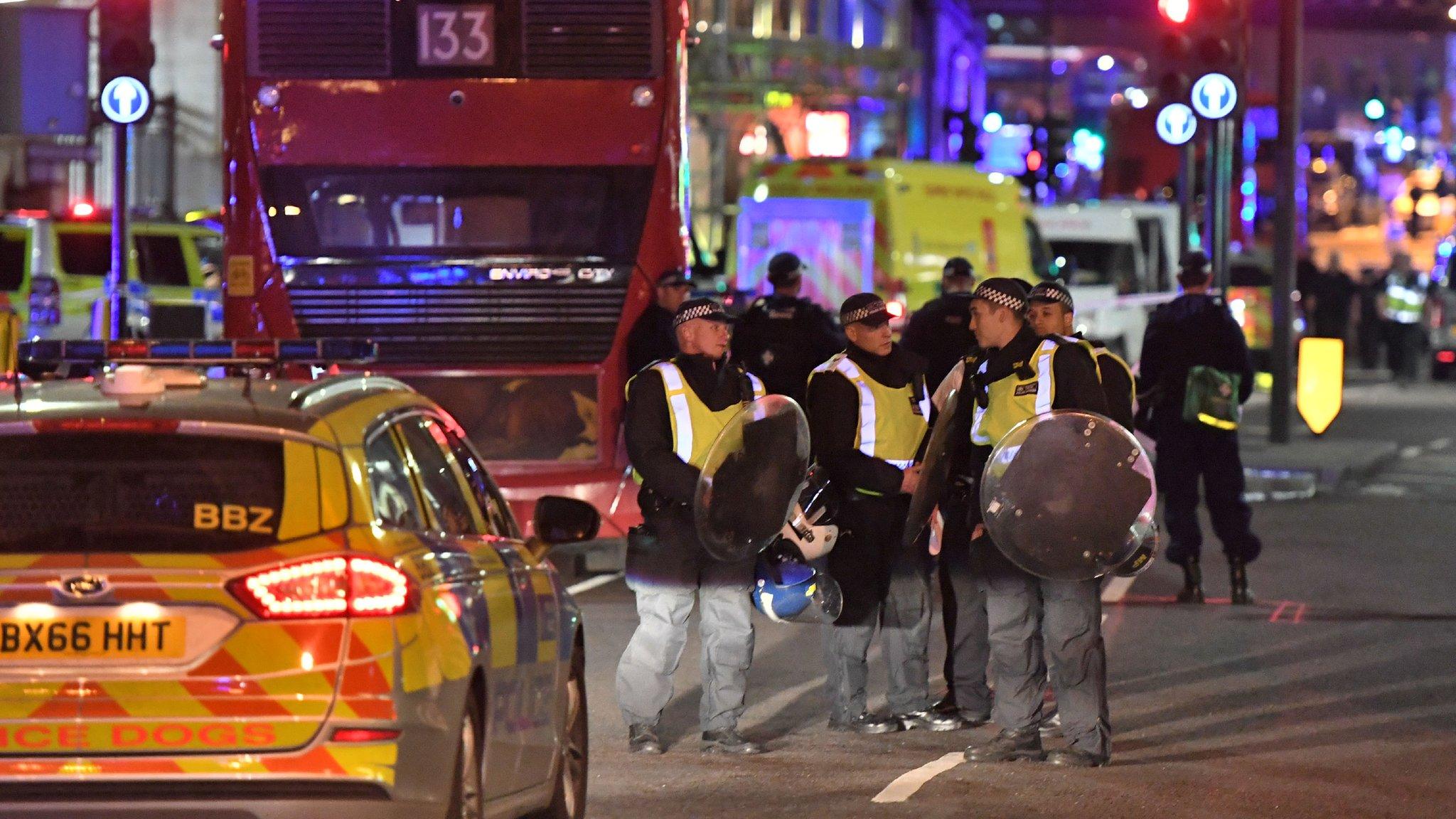London Bridge attacker 'like lion out of cage' with Anjem Choudary
- Published
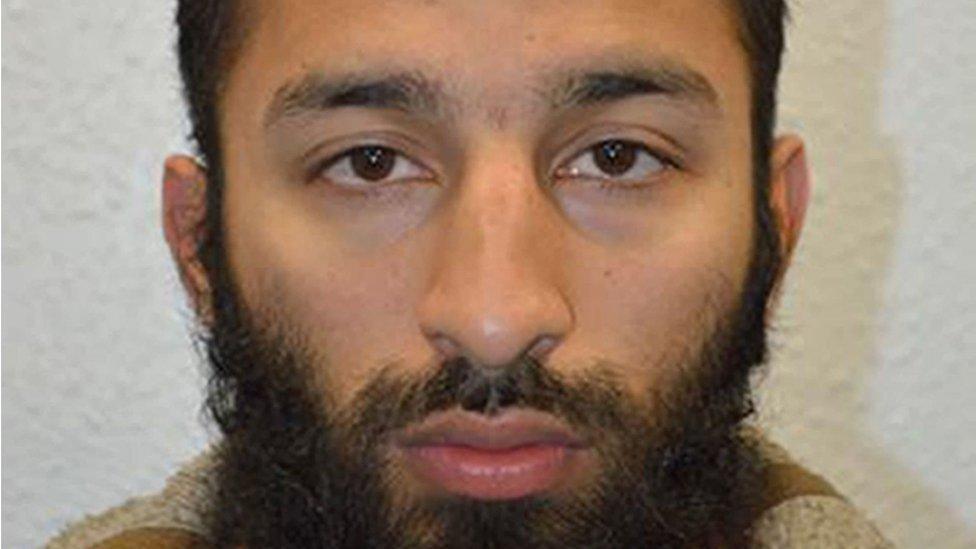
Friends and colleagues said Khuram Butt was a "normal guy"
The ringleader of the 2017 London Bridge terror attack was "like a lion out of a cage" when he was with convicted Islamic State supporter Anjem Choudary, an inquest has heard.
A friend said Khuram Butt, 27, became "energised" when meeting Choudary, who led the banned Al-Muhajiroun group.
In 2015 a relative reported Butt to an anti-terrorist hotline, a court heard.
Eight people were killed in the terror attack he carried out with Rachid Redouane, 30, and Youssef Zaghba, 22.
The men mowed down pedestrians on London Bridge before launching a knife attack in nearby Borough Market, injuring 48 others.
Police shot and killed the three attackers less than 10 minutes after the violence began.
The inquest at the Old Bailey heard how Butt turned from an "earnest and hard-working" schoolboy to an extremist who told a colleague the murder of soldier Lee Rigby in a 2013 terror attack was "an eye for an eye".
In his early 20s friends and colleagues said he was a "normal guy" who liked football and music and smoked cannabis.
However, around 2013, he began showing signs of extremism and two years later his family became concerned he wanted to travel to Syria.
Butt had bought a ticket to travel and his family threatened to disown him and report him to the police, the inquest heard.
'Brought shame on the family'
In January 2016 Butt appeared in a Channel 4 documentary called the Jihadis Next Door, in which he was depicted as a willing participant who "condemned the UK government", particularly over its actions in Iraq and Syria.
The court heard Butt's relatives said he "brought shame on the family" in the programme and forced him to apologise.
In the summer of 2016, Butt had been employed by London Underground as a customer service assistant.
Background checks had not flagged up Butt's appearance in the documentary and he was subsequently sacked in October 2016.
Acting Det Ch Insp Wayne Jolley, who investigated his background, told the court his job had given Butt access to a London Underground station in a security capacity.

The 'shy' man who became a cold extremist
By Hanna Yusuf, BBC News, at the inquest
The already chilly courtroom seemed to feel colder as attendees watched a smiling and impassioned Butt describe the UK government as "extreme" and outline his grievances with British foreign policy in a clip from a Channel 4 documentary called Jihadi Next Door.
Christine Delcros, the fiancee of victim Xavier Thomas, watched the clip with her chin resting on her palm and listened intently to accounts from Butt's friends and family about his life as a self-declared "Londoner who knows his city and people".
All the details about Butt's journey to become the man who would kill Ms Delcros' fiancee appeared to overwhelm her.
She reclined and closed her eyes momentarily before continuing to fix her eyes on the evidence presented on the screens.

Butt was born in Pakistan but moved to the UK with his family aged eight on a visitor's visa. In 2004 he was given indefinite leave to remain.
He went to schools in Forest Gate and Stratford in east London, where he gained 11 GCSEs.
He married Zahrah Rehman in December 2013 and they went on to have two children, with his daughter born just a month before the terror attack.
Butt met fellow attacker Redouane after he began training at a fitness centre on Ilford Road. He befriended Zaghba through swimming sessions and the pair both volunteered at a primary school in east London.
Head teacher Sophie Rahman had asked Butt to give children Koran lessons some 18 months before he launched his attack, the inquest heard.
The school was closed and Rahman was later disciplined for engaging Butt, who had already shown signs of extremism in the 2016 documentary.
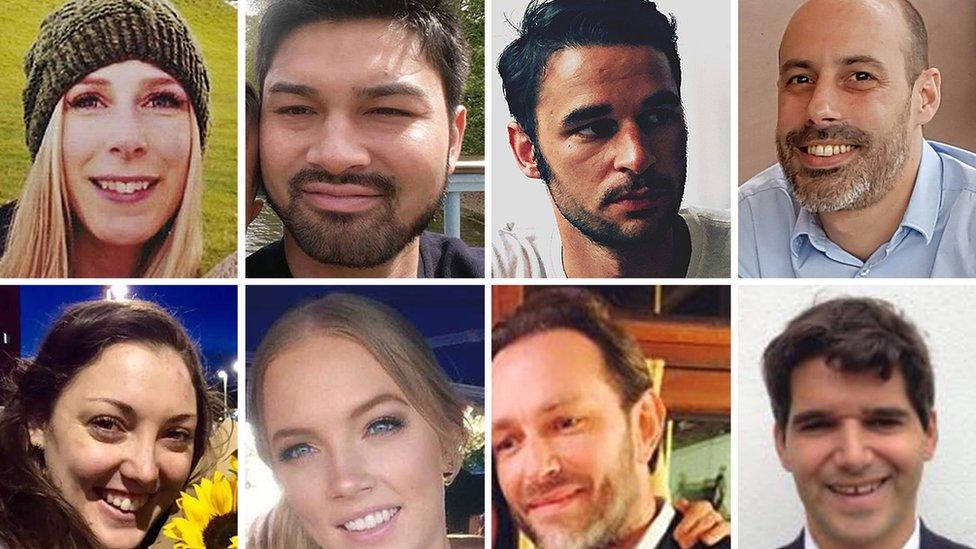
The victims of the attack clockwise from top left - Chrissy Archibald, James McMullan, Alexandre Pigeard, Sebastien Belanger, Ignacio Echeverria, Xavier Thomas, Sara Zelenak, Kirsty Boden
Earlier, the inquest heard that the three men were unlikely to have become more aggressive as a result of taking anabolic steroids before the London Bridge attack.
Prof David Cowan, a pharmaceutical toxicologist, said it was "more likely than not" that the three attackers had taken DHEA at some point before they launched their attack.
However he rejected the suggestion they had been "juiced up" on steroids and said the levels found in their bodies were not "particularly high" and were "highly unlikely" to have had any behavioural effect.
Xavier Thomas, 45, Christine Archibald, 30, Sara Zelenak, 21, Sebastien Belanger, 36, James McMullan, 32, Kirsty Boden, 28, Alexandre Pigeard, 26, and Ignacio Echeverria, 39, were killed in the attack.
The inquests continue.
- Published9 February 2018
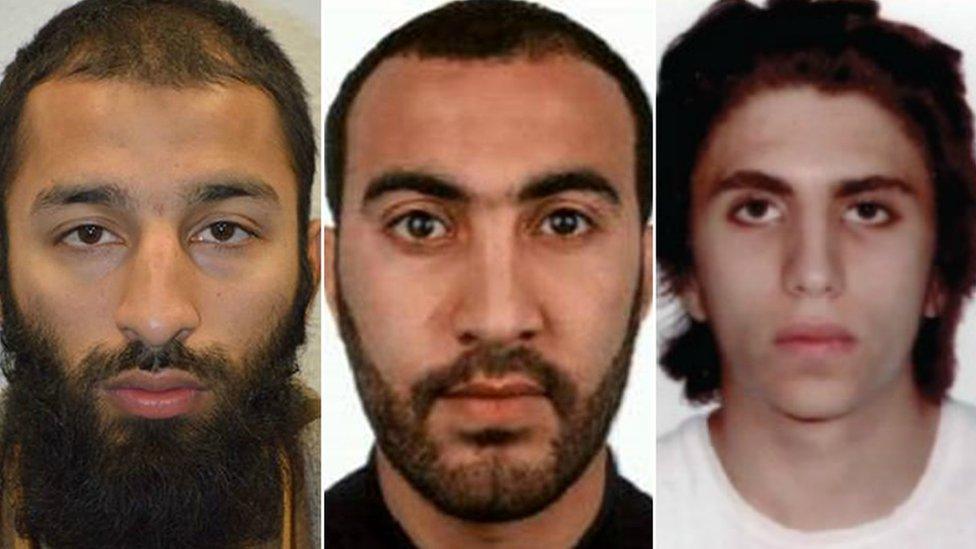
- Published3 May 2019
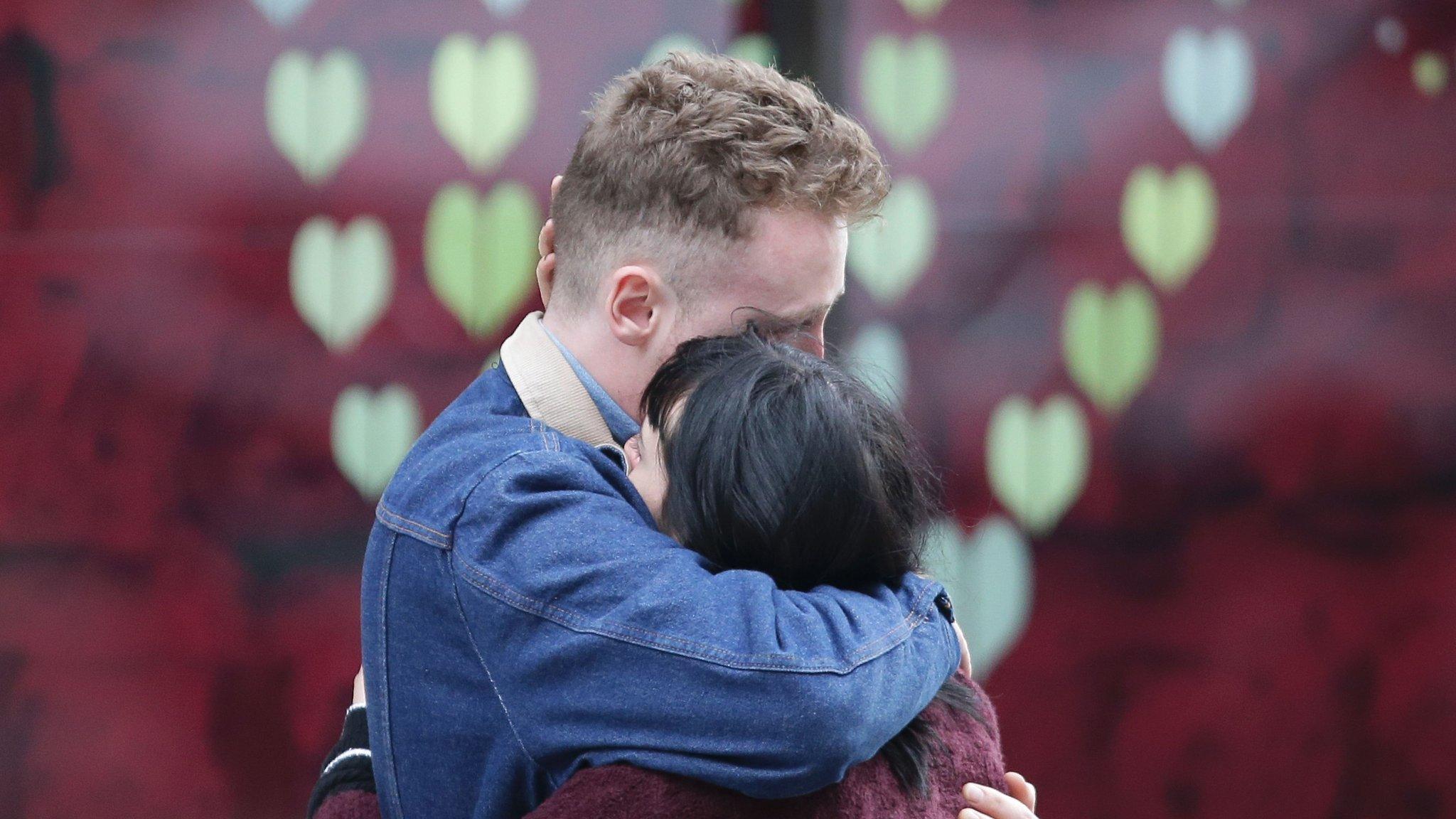
- Published22 May 2019
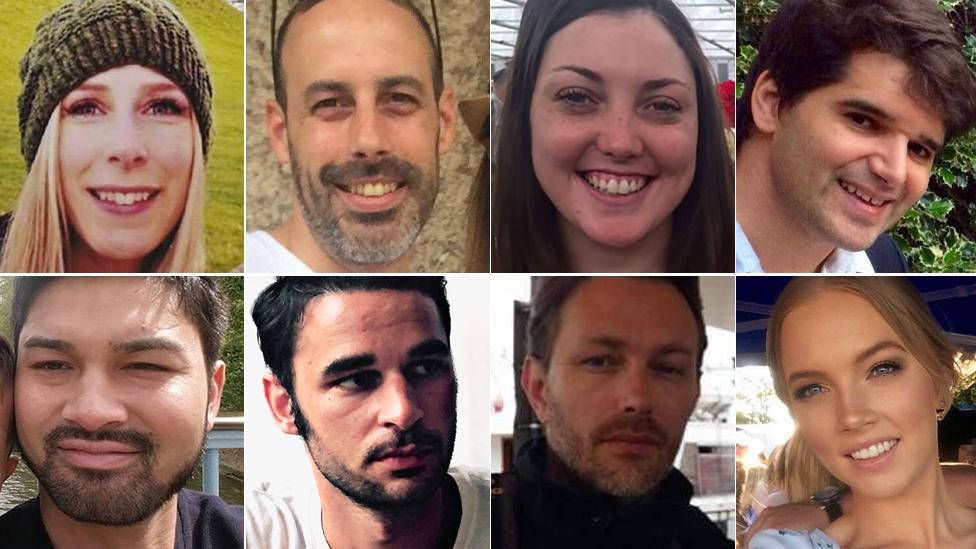
- Published22 May 2019
